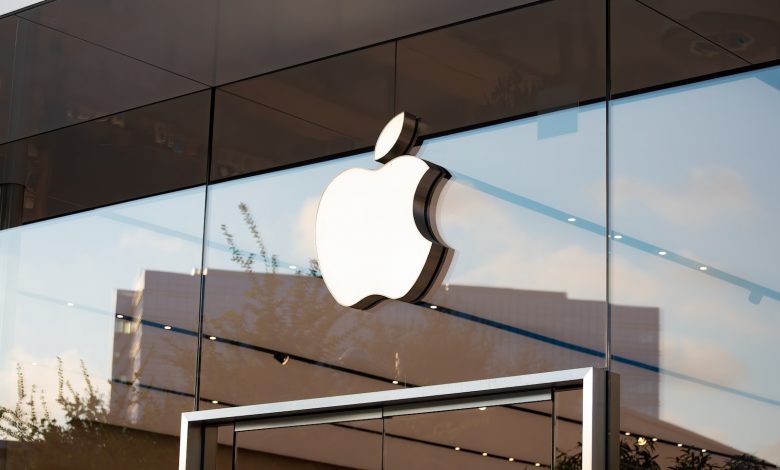
Table of Contents
Apple’s Decreasing Market Capitalization
Apple Inc., the renowned tech giant, has witnessed a significant decrease in its market capitalization recently. The company has lost approximately $200 billion in market capitalization over several days. This massive financial setback has alarmed investors and analysts alike as it represents a considerable share of its total market worth.
Factors Contributing to Apple’s Market Cap Loss
The sharp fall in Apple's market cap is mainly attributed to the amplifying tension between the United States and China. The political unrest and uncertainty have adversely affected the overall tech industry, with Apple bearing the brunt due to its significant exposure in both regions.
Reports of iPhone Restrictions in China
One significant factor contributing to the decline in Apple's market cap is the reports of potential iPhone restrictions in China. Several media outlets have reported that Apple could be singled out by Beijing in response to the ongoing disputes. These reports have led investors to question the future earnings potential of the company, causing a decline in Apple's share price and subsequently, its market cap.
iPhone Restrictions in China
The iPhone restrictions in China have played a pivotal role in causing a significant dent in Apple's market capitalization. This is largely due to the reports suggesting that Beijing may be planning to enforce a ban on the use of iPhones and other foreign-branded phones by its state employees, a move that is aligned with China's ongoing efforts to cut down its reliance on American technology.
Beijing’s iPhone Ban for State Employees
Sources revealed that Chinese central government agencies are receiving instructions not to use iPhones. This extends to state-owned enterprises and other government-controlled organizations. The ban was first reported in the US by the Wall Street Journal and echoed by the British Financial Times citing unnamed official sources, highlighting the extent of the restriction.
Declining Support for Foreign-Branded Phones
Notably, the Chinese authorities' move is not just limited to Apple. It includes a broad curb on the use of all foreign-branded phones. This represents a notable shift in China's approach to technology and an escalating tension between the country and the Western tech industry. It's an acceleration of a policy implemented by some Chinese government agencies in 2020, which cited Apple's strict privacy rules as an obstacle for anti-corruption officials seeking to investigate suspects' phones.
Implications of the iPhone Restrictions
The implications of these restrictions for Apple are significant. China is a major market for Apple, accounting for up to 50 million in annual iPhone sales. Bank of America estimates suggest that the Beijing-imposed ban could cause a loss of 5-10 million units a year. Essentially, the decreased support for foreign-branded phones, coupled with the latent launch of a domestic high-end smartphone as an alternative to the iPhone, makes even a company with a large Chinese presence like Apple susceptible to this escalating tension.
Implications for Apple’s Business
The reported restrictions on iPhone usage in China have severe implications for Apple's business. Given that China accounts for a substantial part of Apple's revenue, such a ban could significantly impact the company's earnings. Furthermore, the launch of a new high-speed smartphone by Huawei could signal even more challenges for Apple in the Chinese market.
China’s Contribution to Apple’s Revenue
Apple's business model is hugely reliant on China, as it contributed nearly 20% of the company's total revenue in the last quarter. In terms of dollars, this equates to an astounding $74 billion in revenue for last year alone. Business in China played a key role in propelling Apple to the heights it enjoyed in recent years.
Domestic Competition and Its Impact on Apple
Besides the proposed iPhone restrictions, Apple also faces threats from domestic competition. The launch of a high-speed challenger device by Huawei, a China-based company, could mean that local consumers have a viable alternative to Apple’s products. This competition, coupled with the reported ban, could severely hamper Apple's growth in this critical market.
Effect on Apple’s Stock
In response to the reports about the ban and potential restrictions, Apple's stock performance dipped considerably. The company's shares fell by 3.6% and 2.8% across two consecutive trading sessions. This underlines the significant correlation between Apple's fortunes in the Chinese market and its overall financial health.
Apple’s Global Supply Chain Vulnerabilities
The potential ban could also spell trouble for Apple's global supply chain. The company relies heavily on China for its device production, with a significant proportion of its major devices being manufactured there. The brewing tensions between Beijing and Apple could further disrupt this relationship and add complications to Apple's production and supply processes.
Context of US-China Tensions
An escalating environment of geopolitical tension between the US and China creates the backdrop to the recent challenges faced by Apple. This tension is increasingly spilling over into the tech industry, with several new rules and regulations aiming to keep U.S. high-tech investment out of China. Amid these global shifts, Apple's latest product launch may increase the pressure it faces in navigating these complex waters.
US Blocks and Regulations on High-Tech Investments in China
The rising friction between the world's two largest economies is manifesting in new policies to protect domestic interests. A recent significant development is an executive order signed by President Joe Biden imposing blocks and regulations on U.S. high-tech investments in China. This move signifies an increase in regulatory scrutiny over US-China trade relations, especially in the technology sector, which could potentially have wider implications for Apple.
US’s Attempt to Prove as Better Economic and Security Partner
This contentious dynamic is further fueled by the United States' ongoing efforts to position itself as a more reliable economic and security partner than China. During the G20 Summit, President Biden proposed to enhance the lending power of the World Bank and International Monetary Fund by $200 billion, a clear signal to developing and middle-income countries of the level of financial engagement the US is ready to offer to outcompete China.
Tensions Coinciding with Apple’s Latest Product Launch
Amidst these growing tensions, Apple is due to launch its latest product, the iPhone 15, on September 12th. Some believe that these geopolitical complexities and the reported ban could negatively affect the launch. However, others like Wedbush analyst Dan Ives argue that these concerns might be overblown, opining that despite restrictions, the sheer demand for the iPhone 15 would result in negligible losses for Apple in its Chinese market.
Increased Competition in the Tech Market
As Apple grapples with the impact of iPhone restrictions in China, it also faces amplified competition in the tech market. China's tech giant Huawei has unveiled a high-speed challenger device that could potentially threaten iPhone sales. On the other hand, Apple is anticipated to bring new changes in iPhone's features in response to market trends, promising an intense rivalry in the tech market.
Huawei’s Rival Smartphone: The Mate 60 Pro
Huawei, one of the largest tech companies in China, recently released its latest flagship smartphone, the Mate 60 Pro. This smartphone is reported to possess power and speed sufficient to rival the iPhone. Despite U.S. imposed curbs on Huawei, preventing it from acquiring high-tech components like advanced processor chips, the Mate 60 Pro's launch suggests that Huawei has found ways around these restrictions. This development, according to analysts at Capital Economics, indicates China's progress in overcoming the constraints created by U.S. export controls.
Anticipated Changes in iPhone’s Features
Apple, on its part, is primed to respond to these market trends through modifications to the iPhone's features. In addition to the ongoing rumors around the release of iPhone 15, there are expectations that Apple might switch from its proprietary Lightning connector to the more universal USB-C plug. This shift is partly in response to a mandate by the European Union, and it speaks to Apple's adaptability in light of emerging trends and directives in the global tech market.
A Dual Challenge for Apple
Thus, Apple confronts a two-front challenge: the reported ban on iPhones in government offices, and the competition from Huawei's high-speed smartphone. This could potentially dent Apple's sales in the Chinese market which were critically significant to its recent business growth. The potential backlash from Beijing, coupled with the increased competition in the tech market, puts Apple in a precarious spot amid global changes and demands.




